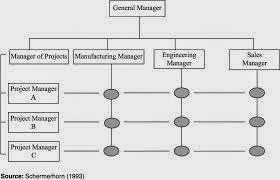WHY PLANNING IS IMPORTANT ?
Planning is
an essential element of planning, covers not merely looking into the future but
making provisions for it. A plan is then a projected course of action. All
planning involves anticipation of the future course of events and therefore
bears an element of uncertainty in respect of its success. Planning is
concerned with the determination of the objectives to be achieved and course of
action to be followed to achieve them. Before any operative action takes place
it is necessary to decide what, where, when and who shall do the things.
Decision- making is also an important element of planning. Planning determines
both long-term and short-term objectives and also of the individual departments
as well as the entire organization.
According
to Fayol - "The plan of action is, at one and the same time, the result
envisaged, the line of action to be followed, the stages to go through, and the
methods to use. It is a kind of future picture wherein proximate events are
outlined with some distinctness.
From above
definition we have following features
1. Planning is
goal-oriented.
2. Planning is the
first of the managerial functions.
3. Planning is found at
all levels of management.
4. Planning also
focuses on accurate forecasts.
5. Planning
co-ordinates the what, who, how, where and why of planning.
6. Planning is an
intellectual process.
As a managerial function
planning is important due to the following reasons:-
1. To manage by objectives: All the activities of an organization are
designed to achieve certain specified objectives. However, planning makes the
objectives more concrete by focusing attention on them.
2. To offset uncertainty and change: Future is always full of
uncertainties and changes. Planning foresees the future and makes the necessary
provisions for it.
3. To secure economy in operation: Planning involves, the selection of
most profitable course of action that would lead to the best result at the
minimum costs.
4. To help in co-ordination: Co-ordination is, indeed, the essence of
management, the planning is the base of it. Without planning it is not possible
to co-ordinate the different activities of an organization.
5. To make control effective: The controlling function of management
relates to the comparison of the planned performance with the actual
performance. In the absence of plans, a management will have no standards for
controlling other's performance.
6. To increase organizational effectiveness: Mere efficiency in the
organization is not important; it should also lead to productivity and
effectiveness. Planning enables the manager to measure the organizational
effectiveness in the context of the stated objectives and take further actions
in this direction.
So Planning
is a mental process requiring the use of intellectual faculties' imagination,
foresight, sound judgment and the conscious determination of courses of action,
the basing of decisions on purpose, acts and considered estimates.
.



Comments